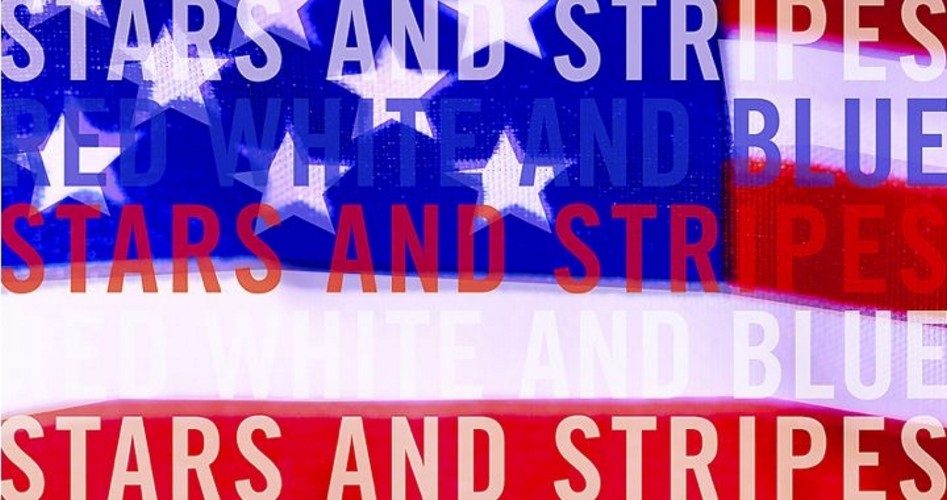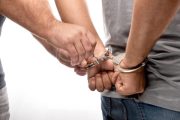
On April 12, Kansas Secretary of State Kris Kobach announced that he has obtained his first conviction of a non-U.S. citizen who illegally voted in a Kansas election.
A press release posted by Kobach’s office on his departmental web page noted that he had secured a guilty plea on April 7 in the voter fraud case of Victor David Garcia Bebek, a noncitizen who pleaded guilty to three counts of voting without being qualified, a class A misdemeanor. The case was brought in Sedgwick County District Court.
Bebek voted on three separate occasions, including a 2012 special election, the 2012 general election, and the 2014 general election. Under the plea agreement, Bebek was placed on unsupervised probation for a period of up to three years and must pay a $5,000 fine. Probation will terminate upon payment of the fine.
The release noted that the Bebek case was the eighth conviction that Kobach obtained since he obtained the authority to prosecute voter fraud in July 2015. However, it was the first for the crime of a noncitizen voting. The others were convictions of people who “double-voted” — that is, they were citizens who voted in Kansas and another state.
“This conviction shows how important prosecutorial authority is,” Kobach said.
Kobach is the only secretary of state in the country with the authority to prosecute voter fraud. Since assuming the authority to prosecute election-related crimes, he has secured $29,000 in fines.
The Kansas City Star cited Kobach’s explanation of how Bebek’s crime had been discovered. Bebek became a U.S. citizen earlier this year and at his naturalization ceremony, he was offered the chance to register to vote in Sedgwick County.
“This gentleman did so, and then when the Sedgwick County election office went back to the office to enter his information, they found that he had been on the voter rolls since 2011,” Kobach said in a phone interview with the Star.
“No matter how many cases we prosecute the political left will always whine that there’s not enough cases to justify protecting our elections in this way,” Kobach continued. “That’s absurd.”
Kobach was elected in 2010 on a platform of securing the integrity of elections. In 2011, he introduced, and the Kansas legislature adopted, the Secure and Fair Elections (SAFE) Act, which requires proof of citizenship at the time of registration and photo identification at the time of voting.
Kobach was quoted in his department’s release: “The problem of noncitizens voting is a serious one, both in Kansas and nationally. Every time a noncitizen votes, it cancels out the vote of a United States citizen.”
“[Bebek’s] conviction is just the tip of the iceberg,” Kobach told Fox and Friends on April 13. “In that same county, we know of 24 other aliens who registered to vote, some of whom voted and others attempted to register. But we can’t prosecute because the statute of limitations has run out.”
During that interview, Kobach also said that he’s advising a White House investigation into voter fraud claims led by Vice President Mike Pence. “I have advised the White House on this problem of noncitizens voting, the problem with people voting in two states in the same election, and other forms of voter fraud, absolutely,” Kobach said.
An article about the Bebek case in the Lawrence (Kansas) Journal World noted that a law that Kobach championed in 2011 requiring people to show proof of U.S. citizenship to register to vote is being challenged in U.S. District Court in Kansas City, Kansas. Last year, noted the article, U.S. District Judge Julie Robinson issued a temporary injunction blocking enforcement of major provisions of the law until the case is decided. The article read:
In a decision upholding Judge Robinson’s temporary injunction, the 10th U.S. Circuit Court of Appeals said last year that Kobach’s office must prove that a “substantial number” of noncitizens have registered in Kansas and that documentary proof of citizenship is the “minimum amount of information necessary” for the state to determine whether someone is eligible to vote.
As to whether there are a “substantial number” of noncitizens who have registered in Kansas, we can consider Kobach’s statement that his office knows of 24 other aliens who registered to vote and others who attempted to register. Considering that the phenomenon of noncitizens and even illegal aliens voting is a nationwide problem, there is little reason to believe that Kansas is much different from other states.
In an article last November, we quoted Gregg Phillips, spokesman for the VoteFraud.org organization (which monitors vote fraud) who said that after completing an analysis of a database of 180 million voter registrations, “We have verified more than three million votes cast by noncitizens [in the 2016 presidential election].”
Phillips also tweeted that VoteFraud.org (which is affiliated with the Cincinnati-based Citizens for a Fair Vote Count) is joining with a Houston-based organization called True the Vote to initiate legal action against those responsible for the fraudulent voting.
True the Vote, the organization with which VoteFraud.org joined in filing legal action related to alleged voter fraud in the 2016 election, has a history of such activism. During the 2010 election cycle, the organization asserted that it had uncovered numerous examples of voter fraud in Harris County (Houston), Texas. It offered, as examples: “Vacant lots had several voters registered on them. An eight-bed halfway house had more than 40 voters registered at its address.”
Another article posted by The New American in January quoted an announcement from Ohio Secretary of State Jon Husted, who said, “An investigation has uncovered that hundreds of non-US citizens are registered to vote in the state, and dozens of them voted illegally.”
The article observed that this was not the first time Husted’s office had found incidents of voting fraud. In 2013, his office uncovered nearly 300 noncitizens who had registered to vote in Ohio, with 17 having voted that year. In 2015, his office found another 145 registered, amongst whom 27 voted.
The problem is a nationwide one. The article noted that in the month before last year’s presidential election, the Washington Free Beacon reported that there were more than 1,000 illegal immigrants registered to vote in a small sample of eight Virginia counties, according to figures produced by the Public Interest Legal Foundation.
“Even in this small sample, when the voting history of this small sample of alien registrants is examined, nearly 200 verified ballots were cast before they were removed from the rolls,” the organization stated. “Each one of them is likely a felony.”
And things are likely to get worse before they get better. In another article last December, we reported that two years after the implementation of AB 60, a controversial law allowing illegal aliens to obtain driver’s licenses in California, an estimated 806,000 illegal residents had received driver’s licenses. The potential for this law leading to voter fraud involving illegal aliens was created on October 10, 2015, when Governor Jerry Brown signed Assembly Bill 1461, the New Motor Voter Act, which automatically registers people to vote through the DMV, and could result in illegal aliens voting.
The day after the bill was signed, a reporter for the Washington Times noted that under the new law, all Californians would automatically be registered to vote when they obtained or renewed their driver’s licenses at the DMV, instead of being required to fill out a form.
The Times reporter noted that election-integrity advocates have warned that the new procedure could inadvertently add millions of illegal voters to the rolls because of California’s practice to allow illegal aliens to obtain driver’s licenses.
Kansas is a much smaller state than California, so any problem that exists there involving noncitizens voting would naturally be on a far smaller scale. But that does not make the problem non-existent. Kansas residents can be thankful that their secretary of state, Kris Kobach, is tackling the crime of noncitizens voting head on.
Related articles:
Vote Fraud Monitoring Group Says Three Million Noncitizens Voted in Presidential Election
Vote Fraud? More Votes Than Voters in One-third of Detroit Precincts
Trump vs. Media: Dems Steal Votes — Media Lie About It and Blame GOP


